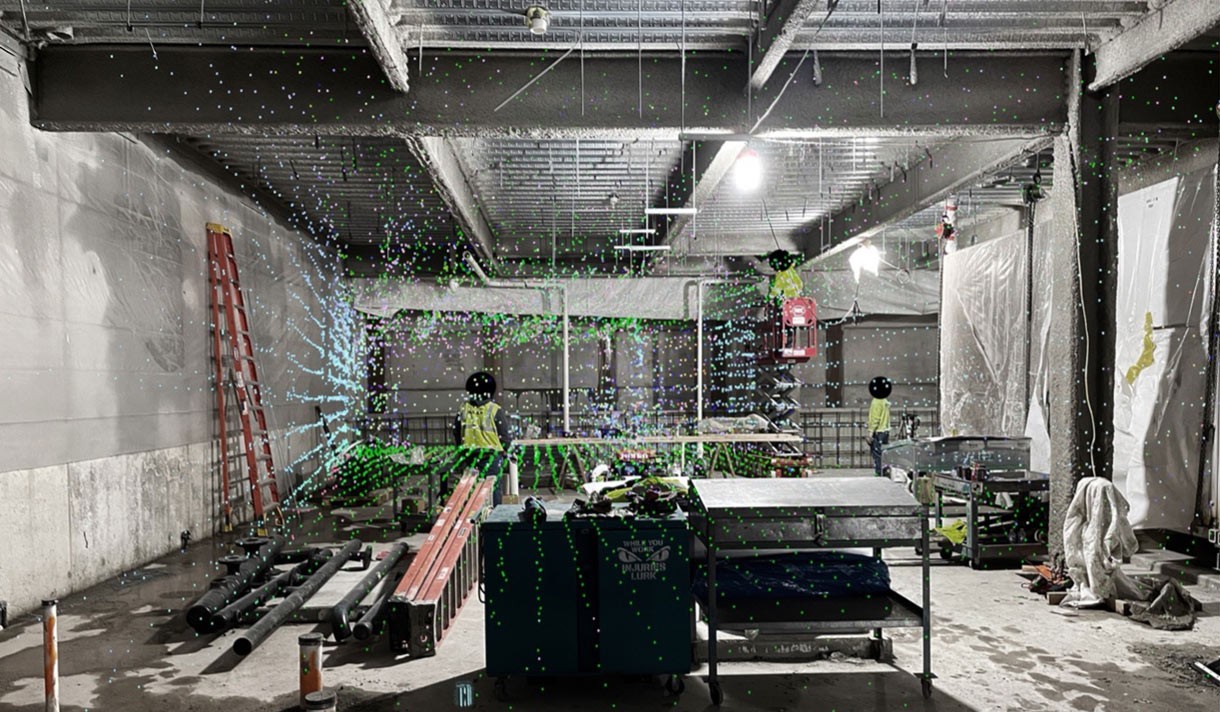Event
April 26, 2023
6:00 PM – 8:00 PM
Online
Architecture has often been related with construction, development, and growth. Architecture’s most ecological versions, have been often identified with recyclable materials, net zero, positive energy production but mostly about adding to the built environment. Urbanism’s most ecological version could be identified with a circular economy and reactivating ecological processes. But these options seem to offer limited ranges of possibilities that are not correlational with the set of crises we are facing nor the horizon of what is anticipatory possible. How can automation, innovation, decentralization, and community emancipation and a real democratic scientific representation be understood in relation to current technologies such as blockchain, automation, simulation, and robotic construction/deconstruction? The event will discuss the work of radical innovative architects in which environmental, economic and social communities issues are related to notions of automated construction devising notions to expand current possible commons.
Design Dialogues
In times of global crises, education, collaboration, and dialogs can represent positive “game changing” factors.
Through dialogue with international universities, industries, and practicing designers, the NYIT School of Architecture and Design Lecture Series will nurture dialogue on the education of the creatives of the future and will challenge the more conventional university curricula, and the narratives and communication strategies of the current professional practice.
Introduction and Moderation
-
Pablo Lorenzo-Eiroa, Ph.D.
Associate Professor, Director AI Research Lab, New York Tech School of Architecture and Design
-
Sandra Manninger, Ph.D.
Associate Professor, New York Tech School of Architecture and Design
-
Athina Papadopoulou, Ph.D.
Assistant Professor of Architecture Health and Design; Chair SoAD Lectures and Events, New York Tech School of Architecture and Design
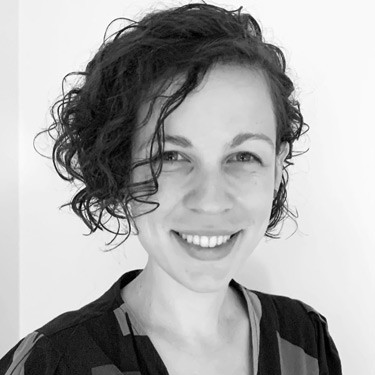
Speaker
Theodora Vardouli, PhD
Assistant Professor at the Peter Guo-hua Fu School of Architecture at McGill University.
Lecture: Algorithmic Automation Before Big Data
Today, machine learning coupled with a cornucopia of algorithmic techniques placed under the permissive umbrella of artificial intelligence are rekindling enthusiasm around the persistent vision of an “automated architect.”
In this talk I consider how the algorithmic automation of architecture, as a theoretical and technical chimera, was historically configured through specific modes of computational abstraction. I mobilize the mathematical objects that supported these abstractions to suggest that despite their professed autonomy and seemingly incontrovertible coherence, the algorithms for automatically generating architectural form were robustly rooted in specific architectural settings; both in material practices of recording and abstracting human habitation of and labor in buildings, as well as in architectural expert cultures that bartered concepts and techniques for reconstituting architectural work as an algorithmic process.
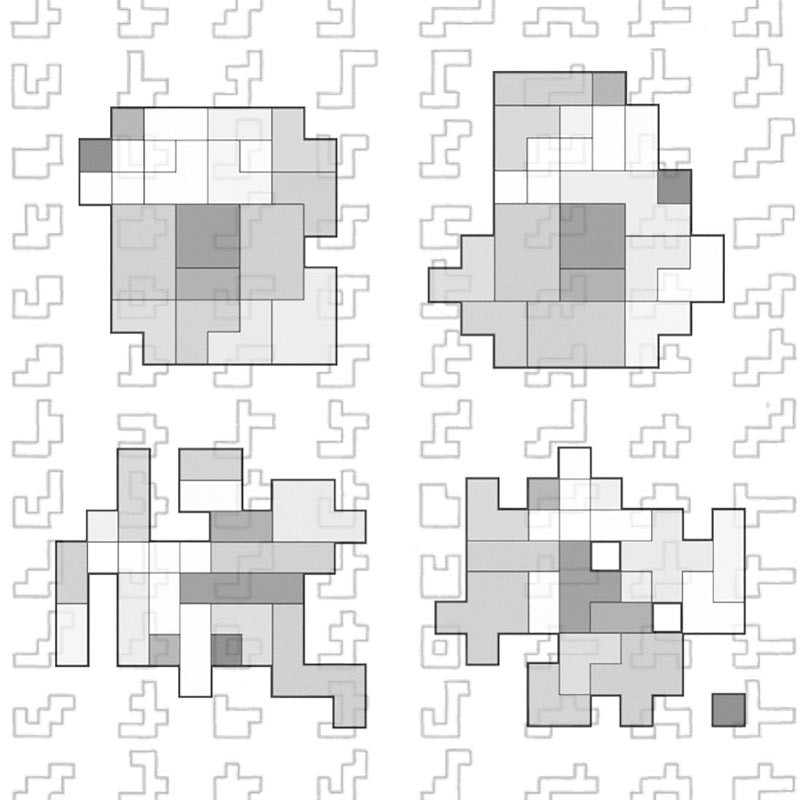
Bio
Theodora Vardouli is an Assistant Professor at the Peter Guo-hua Fu School of Architecture at McGill University. Her historical work on algorithmic reconfigurations of architecture has been published in several peer-reviewed journals and edited collections. She is the author of the forthcoming book Graph Vision: Digital Architecture’s Skeletons (MIT Press, 2024), co-editor of Computer Architectures: Constructing the Common Ground (with Olga Touloumi, Routledge, 2020) and co-author and coeditor of Designing the Computational Image, Imagining Computational Design (with Daniel Cardoso Llach, Applied Research and Design Publishing, forthcoming 2023).
Read Bio
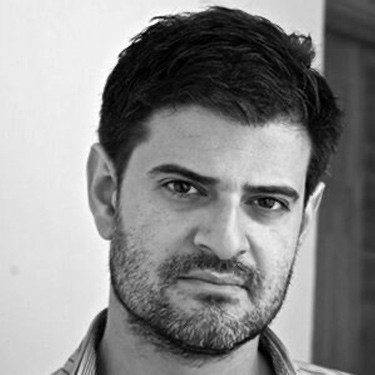
Speaker
Alexandros Tsamis, Ph.D.
Graduate Program Director of Built Ecologies MS & PhD and the Associate Director of CASE
Lecture: Grow, Share, Repeat: The Metabolism of Renewable Resources".
In this lecture, Alexandros Tsamis will argue that renewable recourses, both material and energy resources, offer a unique opportunity to reconsider the design principles governing equitable access to them, at any scale. Unlike single-use resources that tend to be concentrated in specific geographical locations, renewable resources are expanded and become ubiquitous, potentially transforming into a common resource. How can design play a pivotal role in ensuring fair and direct access to renewable resources? This lecture will show different approaches developed at the Center of Architecture Science and Ecology of RPI that transform material and energy into an emergent landscape of commons.
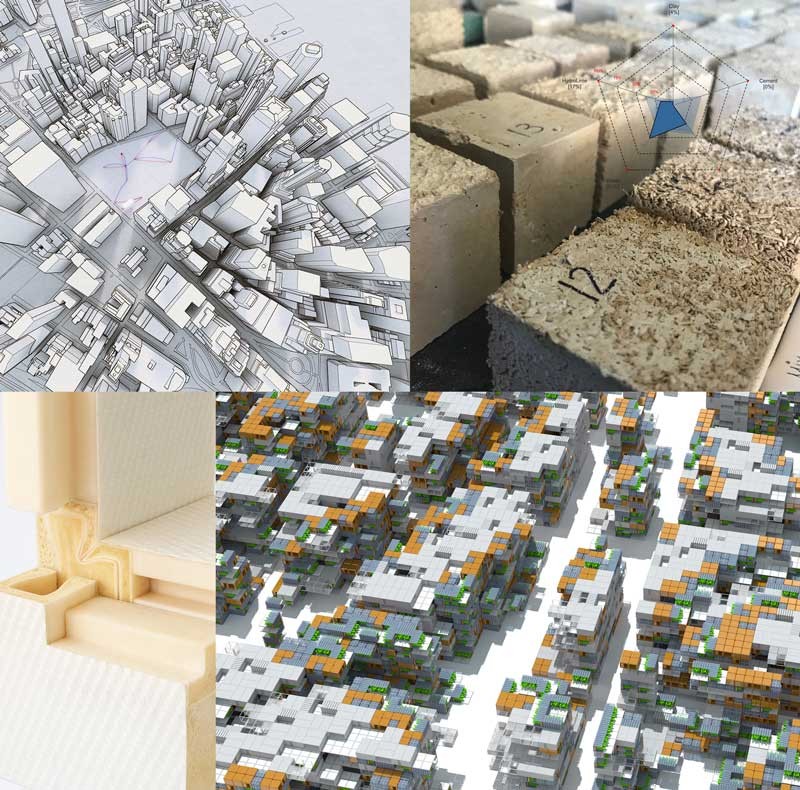
Bio
Alexandros Tsamis is an Architect and Assistant Professor at the school of architecture, RPI. He is the Graduate Program Director of Built Ecologies MS & PhD and the Associate Director of CASE. He earned his PhD in Architecture, Design and Computation and Master of Science (SMArchS) in Design and Building Technology at the Massachusetts Institute of Technology (MIT).
Read Bio
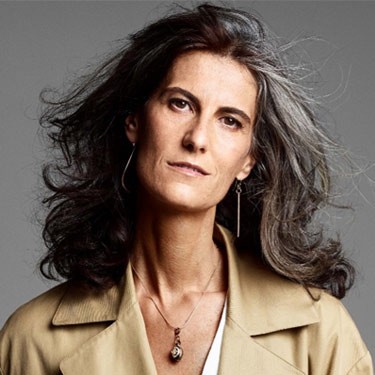
Speaker
Galia Solomonoff
Director of Housing Lab, Professor GSAPP/Columbia University, Principal/SAS
Lecture: GSAPP builds together
In this presentation, Galia Solomonoff will showcase the full-scale installations completed by graduate students at Columbia University's Graduate School of Architecture, Planning, and Preservation/GSAPP. Co-taught with professor Laurie Hawkinson in 2021, 2022, and now, the design-build seminar, titled "The Outside In Project," provides an opportunity for students to work collaboratively in person after a long period of remote learning due to the COVID-19 pandemic.
"WEB" was a full-size inflatable installation, colorful yet diaphanous, designed to provide shade and shelter. The installation was suspended from the facades of Columbia's Avery and Fayerweather Halls and invited passersby to interact, celebrating a sense of community and bringing people together under a pillowy roof.
Galia will discuss the design and construction process of the installation, highlighting the challenges and creative solutions that the students employed to bring the project to life. The presentation will also touch on the larger themes of the class, which challenged traditional notions of public space and promoted new forms of social engagement through design.
Overall, these installations are an occasion to question how building together changes us and how architecture can transform public space, promote community engagement, and provide much-needed connection and fun in an urban environment.
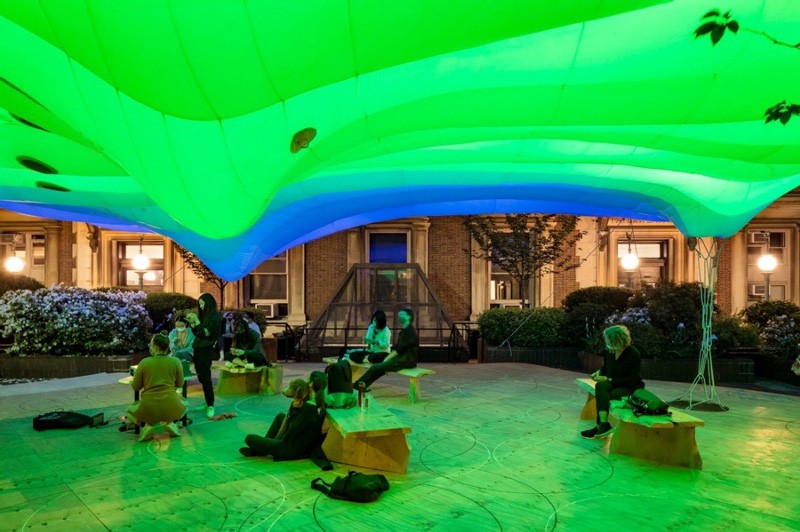
Bio
Galia Solomonoff is the founder and principal of Solomonoff Architecture Studio/SAS, an award-winning firm established in New York in 2004. Solomonoff is also the Director of Housing Lab and an Associate Professor of Professional Practice in Architecture at the Graduate School of Architecture, Planning, and Preservation (GSAPP) at Columbia University. She teaches advanced architectural design, and housing, lectures on urban topics, and Latin American Architecture.
Read Bio
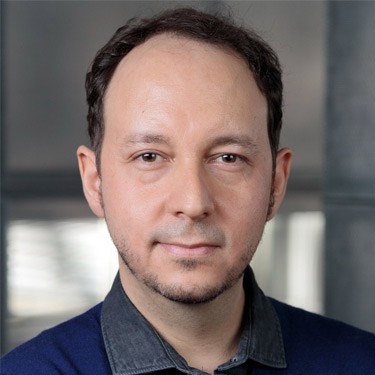
Speaker
Daniel Cardoso Llach, PhD,
Associate Professor, School of Architecture
Lecture:Robots in the Loop: Reconfigurations of Construction Automation
Ever since the emergence of digital computers, architecture and computing have been entangled in a game of reversible metaphors. Computational methods and concepts offered 20th century techno-utopian architects and experimentalists a language that seemed to bridge technical rationality and the possibility of satisfying the needs of individual dwellers, and a canvas on which to render visions of a more participatory and democratic architecture and urbanism — without the interference of architects and planners. Despite these hopeful images, technologies in industry relentlessly followed a different path. Subdividing work into discrete and carefully regimented chunks, and distributing it along assembly lines, Taylorist modes of production foreshadowed later efforts to digitize manufacturing and construction labor.
Today’s attempts to employ AI and machine learning in construction persist in pursuing these ideals of discreteness and pliancy, albeit with an updated technical (and rhetorical) repertoire: systems purporting to automate or augment human labor; to autonomously carry out construction tasks; to surveil and control workers’ bodies and the behavior of materials. These overwhelmingly elide the obstinate specificity of designing and building.
How may historical/qualitative understandings of construction combine to inform the design of humane construction environments supported by robotics and AI techniques? This talk will draw from ongoing efforts to develop and implement scenarios for “robotically-supported collaborative construction” informed by an ethnographic study of a construction site in the United States, offering a perspective of AI and robotics techniques as resources rather than as surrogates — ones fully contingent upon a variety of (often fragile) social and technological conditions.
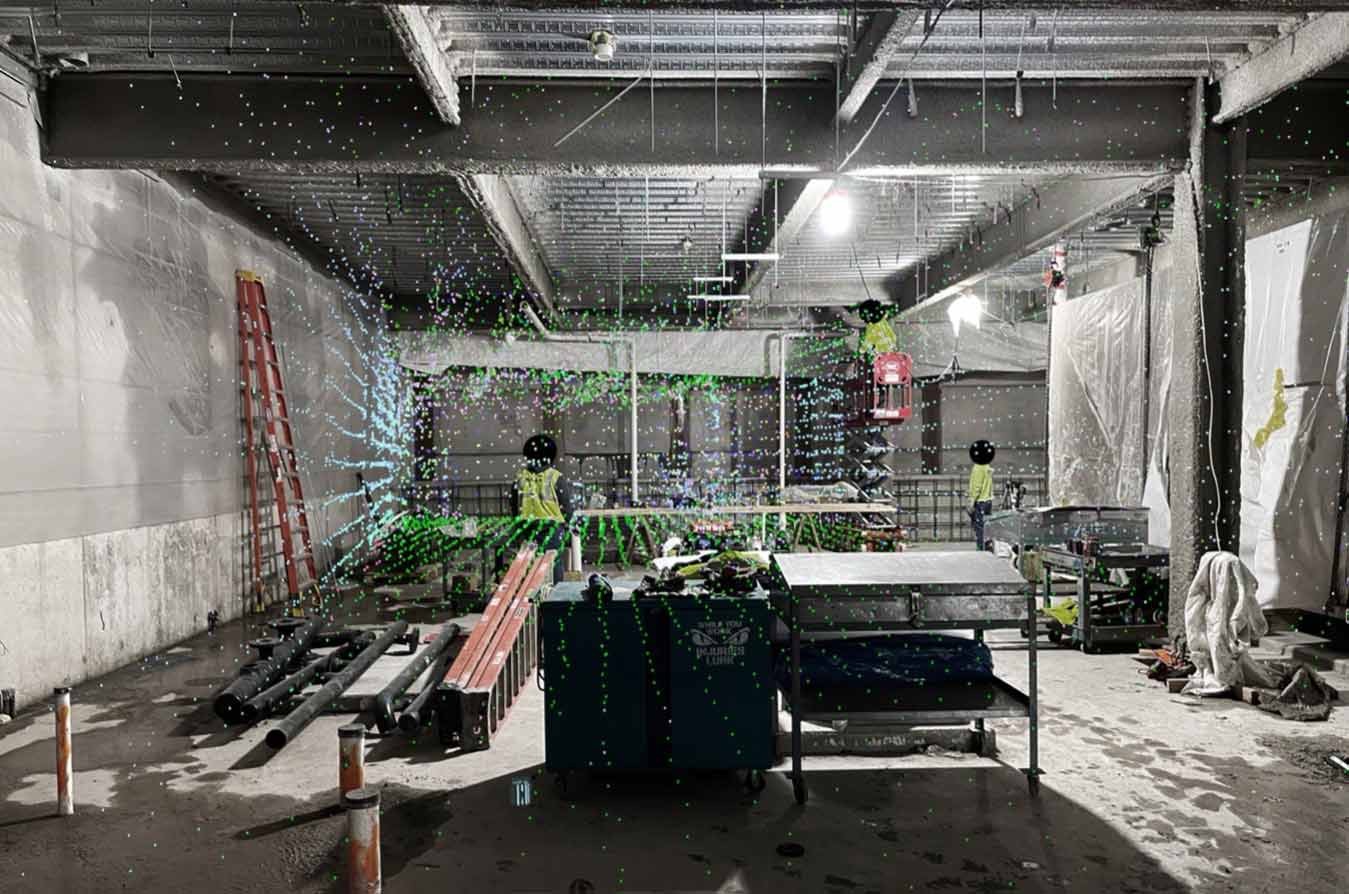
Bio
Daniel is Associate Professor of Architecture at Carnegie Mellon University, where he chairs the Computational Design graduate program and co-directs CodeLab. He is the author of publications, exhibitions, and artifacts exploring critical histories and practices of automation and computing in design and architecture, including the book Builders of the Vision: Software and the Imagination of Design, and the forthcoming Designing the Computational Image, Imagining Computational Design, with Theodora Vardouli. Daniel’s work has been supported by the Graham Foundation for Advanced Studies in the Fine Arts, Canada’s Social Science and Humanities Research Council, Google’s Artists + Machine Intelligence program, among others.
Read Bio
